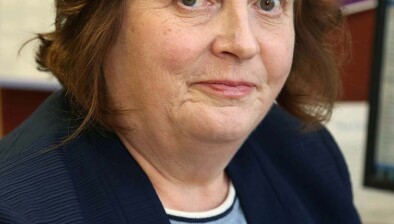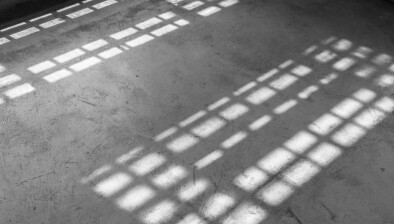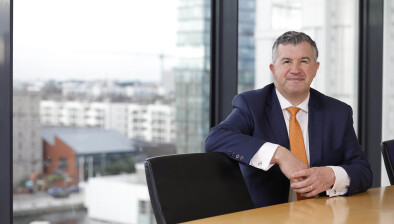High Court: Medical Council fails in application to suspend doctor from register pending outcome of fitness to practise inquiry

The High Court has refused an application by the Medical Council to suspend a doctor from the register pending the resolution of a fitness to practise inquiry. The doctor had previously been convicted for drunk driving and other driving offences and banned from driving for 10 years.

About this case:
- Citation:[2022] IEHC 503
- Judgment:
- Court:High Court
- Judge:Mr Justice David Barniville
Despite providing certain undertakings to the High Court that he would not violate any road traffic law, the doctor breached the undertaking and was convicted of further driving offences. It was only “by the finest margin possible” that the High Court refused the interim suspension application and instead accepted renewed undertakings on oath as to future conduct.
Background
The respondent (known as B) was employed by a hospital in 2018 as a surgical registrar. His contract ended in July 2022. He qualified abroad and moved to Ireland in 2014. In 2021, the Medical Council made a complaint to the Preliminary Proceedings Committee arising from an admission by B in a 2020 annual retention form to having previous criminal convictions.
The respondent had stated that he was convicted of “careless drink driving with no insurance”. Following this admission, it transpired that B had several convictions relating to drink/drug driving, dangerous driving, driving without a licence and driving without insurance, which dated back to 2016. He was disqualified from driving for 10 years.
The Council decided to seek the suspension of B pending the outcome of the PPC inquiry after it received a letter from a Garda Superintendent in November 2021. The Superintendent indicated that he/she had “valid and genuinely held patient safety concerns” after B had “come into contact with Gardaí while en route to/from work and in surgical scrubs” in July 2021. The Superintendent also stated that B was convicted of an offence under section 3 of the Misuse of Drugs Act 1977.
In a meeting with the Council, B emphasised that his work was not directly affected by any of the convictions or offences. Regarding the July 2021 driving incident, the respondent blamed his insurance broker, claiming that he was led to believe he was allowed to drive and had insurance.
The Council applied for a suspension order pursuant to section 60 of the Medical Practitioners Act 2007 in December 2021 on the basis that the order was necessary to protect the public. It was also noted that adverse findings in the PPC inquiry would likely lead to erasure or suspension from the register, given the seriousness of the offending.
The respondent swore that he had never attended work under the influence of any substance and that the safety of his patients was never compromised. He also provided positive references from consultants at the hospital who said that he was not a risk to patient safety. He also disputed that he had any conviction under the 1977 Act.
Ultimately, B provided certain undertakings which dispensed with the need for the suspension order in December 2021. These undertakings included providing full cooperation with any recommended treatment regimes and testing for substances. Crucially, the respondent also undertook to uphold the law in terms of driving licence, insurance and Misuse of Drugs Act matters.
High Court
Following the December 2021 hearing, the PPC directed B to provide full information of each of his convictions. However, he did not provide this information to the PPC. Further, the respondent was convicted of two further driving offences after the December 2021 hearing, including driving while disqualified and without insurance and driving without a licence and insurance. He pleaded guilty to both charges and received a five month sentence. An appeal was lodged.
The respondent claimed that he had been at a friend’s house with his wife when she suddenly took ill. He said he was driving her to the hospital when he was stopped by gardaí, by which time his wife had recovered. He claimed that his wife went for further tests abroad after the incident.
Having not complied with the terms of the December 2021 undertakings or received any information relating to his criminal convictions, the Council continued with its suspension application against B. It was explained that the Council had lost confidence in the respondent’s willingness to comply with the undertakings and that he had displayed a lack of insight into his conduct. Accordingly, it was said that the public would not be adequately protected unless the respondent was suspended.
In response, B stated that he was not in breach of any of the other undertakings and his conviction was based on his wife’s health. He apologised for breaching the undertaking. He also argued that he had attended to all his professional obligations in a safe manner and no claim was being made by the Council to the contrary.
Considering the application, Mr Justice David Barniville delivered an ex tempore ruling in which he noted that an interim suspension should be reserved for exceptional cases of public interest (see Casey v. Medical Council [1999] 2 I.R. 534). The public interest had to be weighed against the constitutional right of the doctor to earn a livelihood, the court said (see Medical Council v. P.C. [2003] 3 I.R. 600).
The court held that the balancing exercise in the case was “extremely fine” and that it barely titled in favour of accepting new undertakings from the respondent. The court held that a suspension order was not appropriate in light of the absence of any threat to the health and safety of the respondents’ patients. While he had engaged in discreditable conduct, B’s work references were very positive.
Instead, the court held that new undertakings provided by the Council would be sufficient to meet the justice of the case. The new undertakings were provided as a “fallback” option by the Council and were very similar to the original undertakings. The new undertakings contained additional requirements to account for the fact that B was no longer in employment. B was required to 1) notify employers and the Council in advance of taking up new employment and 2) consent to the public register mentioning his undertakings.
Mr Justice Barniville commented that he could “easily see” why the suspension application was pursued but noted that B’s positive references were uncontradicted. Further, the court reasoned that the Council had provided the new undertakings and had to be satisfied at some level that those undertakings would be sufficient.
Conclusion
The court exercised its discretion to refuse the suspension application “by the finest margin possible.” The respondent was required to give the new undertakings on oath to the court and was warned that any further transgression would lead to a real risk of an interim suspension. Finally, the court stated that B was required to provide the requested information to the PPC/Council as a matter of urgency.
Medical Council v. B [2022] IEHC 503










